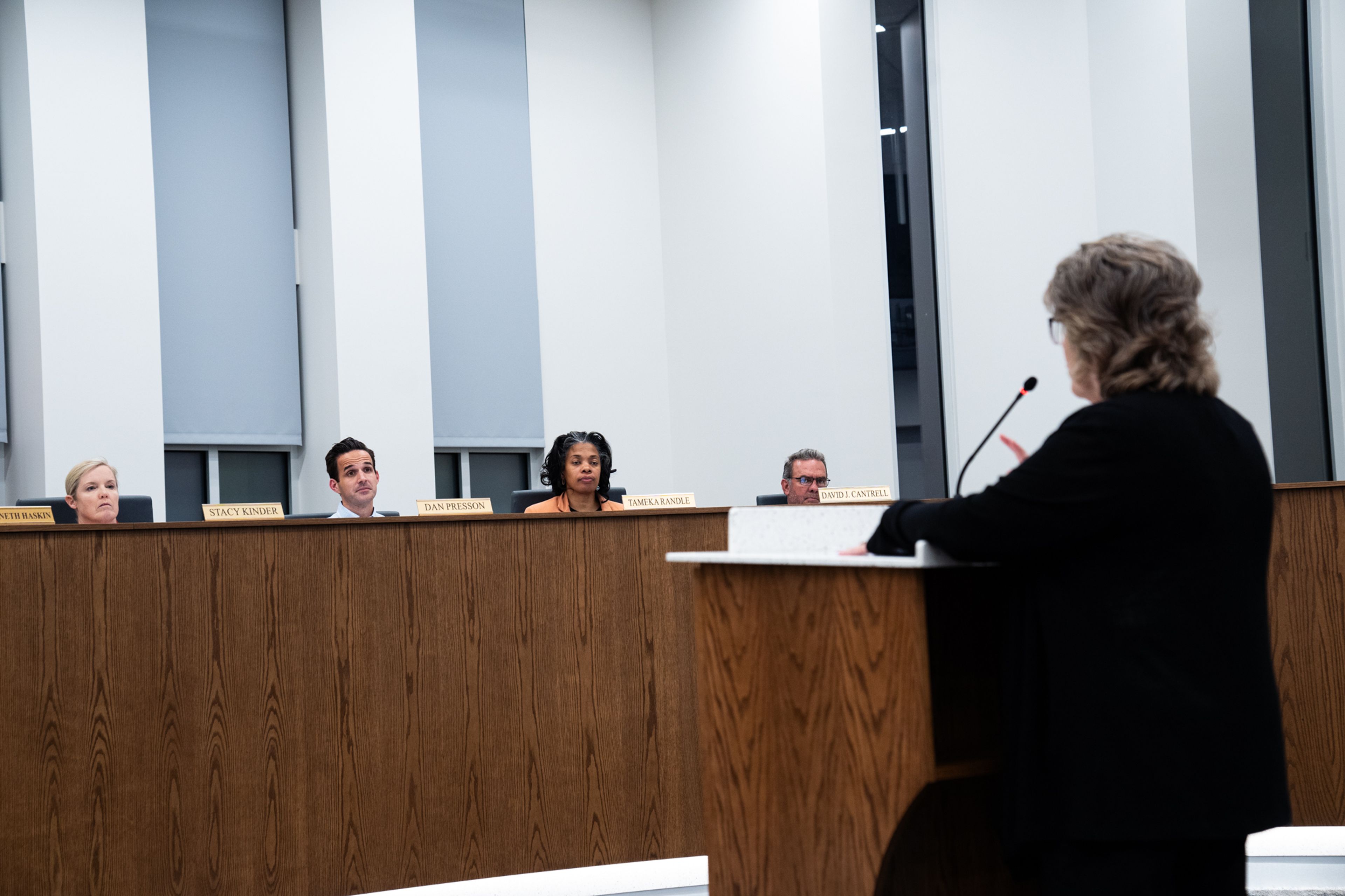Scott Co. sheriff's records lacking
BENTON, Mo. -- In the Scott County Sheriff's Department evidence room, boxes and bags sit on shelves in a haphazard fashion, some with labels dating to the 1990s. The gun vault is more orderly, but the tags there show that some of the 300 weapons have been in the hands of the sheriff's office for 30 years or more...
~ Inventory paperwork often shows there is something from a case in the evidence room -- but not exactly what.
BENTON, Mo. -- In the Scott County Sheriff's Department evidence room, boxes and bags sit on shelves in a haphazard fashion, some with labels dating to the 1990s.
The gun vault is more orderly, but the tags there show that some of the 300 weapons have been in the hands of the sheriff's office for 30 years or more.
The evidence room and gun vault were cited as areas of concern by state auditors, who issued a report Oct. 4 on Scott County government. The report also questioned several financial transactions in the sheriff's department, most focusing on the last year Bill Ferrell was sheriff.
The auditors also wanted to know why Ferrell, according to gun inventories, removed 10 guns from the gun vault in his last week in office. Ferrell, in a reply to the auditors, said he only took five and that he gave auditors a letter from each gun owner acknowledging they received their property.
Rick Walter took over the sheriff's office Jan. 1, 2005, from Ferrell, who held the job for 28 years. He acknowledges that if someone asked for their property back from an old burglary or if a prisoner making an appeal got a new trial, some of the items might be difficult to find.
"A lot of this stuff was here before my time," he said. "I don't know what is all here."
Inventory records, he said, often show there is something from a case in the evidence room, but not exactly what.
"You can look at an old case and find a little over here, a little on that side of the room," Walter said, pointing out how little organization exists.
The auditors cited the lack of complete inventory and that as many as eight deputies have had keys to these supposedly secure areas.
After state auditors raised questions about the management of seized property, Walter retrieved many of the keys. But fixing other issues cited by the auditors -- updating the inventory of seized property to deter and identify loss, misuse or theft and dispose of unneeded items, will have to wait, he said.
"I would have to stop investigations we have right now or hire two people to come in here for about two months," Walter said.
Walter said he's not dismissing the concerns of the auditors -- he's changed many of the business practices of the department at their suggestion and said he appreciated help auditors provided in setting up new financial systems for tracking prisoner's commissary funds.
And Walter said he believes inventories of current cases are being more completely recorded. The evidence room in the sheriff's department has an open area behind a locked door where recently seized property is tagged, photographed and inventoried.
A caged-in area is the source of the headache about inventorying past items. Along with seized property, there are boxes of reports -- some more than two decades old -- and idle computers and other material that Walter assumes is owned by the county. Some items have county inventory tags, some do not.
"Nothing in here is supersensitive," Walter said. "It is just a lot of old cases."
The guns are a different matter, Walter said. Each gun represents either a burglary, a shooting or a seizure to protect the public or an individual from harm. There are handguns of every caliber and description, from single-shot derringers to an antique percussion-cap revolver.
Owners of the guns in the vault could claim them, Walter said. "Or we could get a court order to destroy them. Otherwise, they will stay here."
Getting a court to order destruction of the guns would require a complete inventory and research into who owned each gun and whether it should be returned, Walter said. That work could also allow him to sell the surplus guns, but he's not willing to do that.
"Some law enforcement agencies have had sales," he said. "But I don't want to do that because of cases where departments have sold a gun and it was used in a crime. While it would generate some dollars, I don't want to take that risk."
The most unusual find so far in either property room is a Thompson submachine gun, the infamous "Tommy gun" preferred by gangsters of the 1920s and '30s. Walter doesn't know why the department has one, but it is tagged as property of Scott County.
Perhaps it was issued to the department during those rough years when Bonnie and Clyde or Baby Face Nelson roamed the Midwest, Walter said.
He has the gun stored in a padded guitar case, given by a friend.
"I keep thinking I am going to go out and shoot it someday," he said.
rkeller@semissourian.com
335-6611, extension 126
Connect with the Southeast Missourian Newsroom:
For corrections to this story or other insights for the editor, click here. To submit a letter to the editor, click here. To learn about the Southeast Missourian’s AI Policy, click here.









